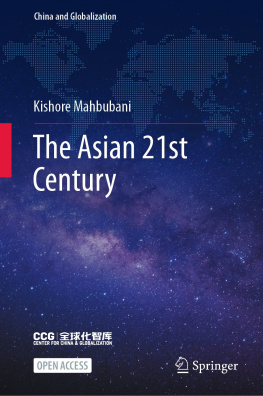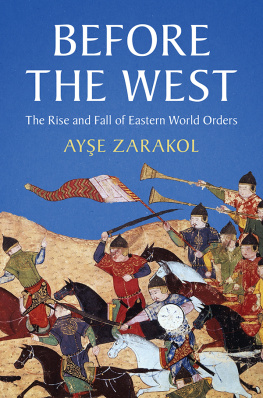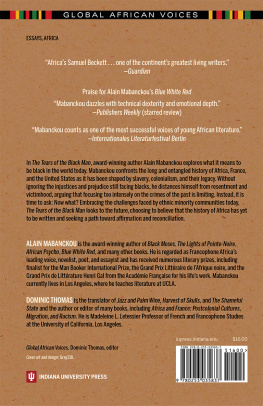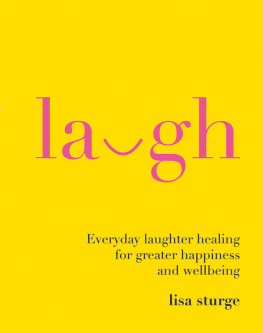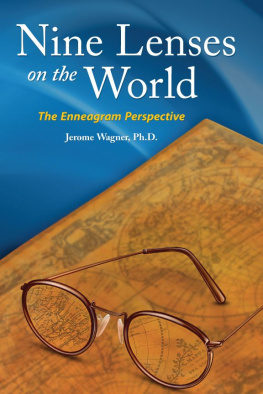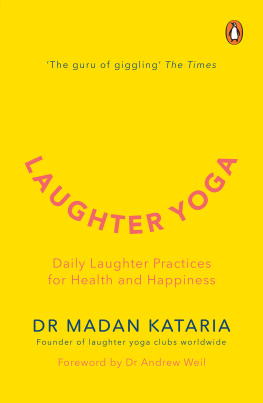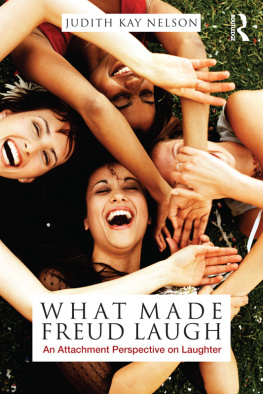Yutang - Between Tears and Laughter
Here you can read online Yutang - Between Tears and Laughter full text of the book (entire story) in english for free. Download pdf and epub, get meaning, cover and reviews about this ebook. City: China, year: 2013, publisher: Read Books Ltd, genre: Politics. Description of the work, (preface) as well as reviews are available. Best literature library LitArk.com created for fans of good reading and offers a wide selection of genres:
Romance novel
Science fiction
Adventure
Detective
Science
History
Home and family
Prose
Art
Politics
Computer
Non-fiction
Religion
Business
Children
Humor
Choose a favorite category and find really read worthwhile books. Enjoy immersion in the world of imagination, feel the emotions of the characters or learn something new for yourself, make an fascinating discovery.

Between Tears and Laughter: summary, description and annotation
We offer to read an annotation, description, summary or preface (depends on what the author of the book "Between Tears and Laughter" wrote himself). If you haven't found the necessary information about the book — write in the comments, we will try to find it.
Between Tears and Laughter — read online for free the complete book (whole text) full work
Below is the text of the book, divided by pages. System saving the place of the last page read, allows you to conveniently read the book "Between Tears and Laughter" online for free, without having to search again every time where you left off. Put a bookmark, and you can go to the page where you finished reading at any time.
Font size:
Interval:
Bookmark:
LIN YUTANG
AND LAUGHTER


TO
RICHARD J. WALSH
PEARL S. BUCK
IN ABIDING FRIENDSHIP
THE purpose of this book is to say something that must be said and say it with simplicity.
The age calls for simple statements and restatements of simple truths. The prophets of doom are involved, those who would bring light must be clear.
Our problem is the problem of moral decay and regeneration. From a handful of dust faith must come. There is more hope in a heather rose than in all the tons of Teutonic philosophy.
I do not know how to say these things, but God give me strength to say them.
The shadow of another war already looms before us. We have to think straight and think fast.
LIN YUTANG
AS I take up my pen to put down the thoughts bursting for expression in my head and my heart, I am troubled by the question of ruthless honesty and whether it is worth while. The question is not whether it is worth while to myself, but to the public. I have decided that it is worth while. For every good book is worth the readers while when there is a real communion of the spirit, and this is possible only when he feels he is being taken into the authors confidence and the author is willing to reveal to him the innermost searchings of his heart and talk, as it were, in an unbuttoned mood, collar and tie loose, as by a friends fireside. Nobody is ever misunderstood at a fireside; he may only be disagreed with. Agreement of opinion is the least important thing; disagreement is not only profitable, but necessary to thinking. At the fireside of a friend there is many a heated argument, after which both friends see many things not seen before. The writer who is willing to let go is sure of being understood, and only friendship which can stand occasional plain speaking is worth having.
I may as well make a confession here. For a month or so, I have been living in a daze. My mind, as I look back upon it now, has been a complete blankI can only remember fuming and lying awake at night, thinking, thinking, thinking of how to break the solid wall of the Washington blockade of supplies for China. And thinking, lying awake at night, over the puzzle that President Roosevelt gave us. Even now, said the President, we are flying into China as much Lend-Lease material as ever traversed the Burma Road. That statement contained a joker, and I didnt like itI didnt like joking and quibbling about vital supplies for my country at war. I knew the exact tonnage being flown in, which no official has dared to make public. It was the last straw, and broke the camel of easy-paced Chinese patience. It was a slap in the face, and stunned me into a half-daze.
Let me tell you how the Chinese camel broke. I had been slapped in the face before, or rather I felt China had been, successively. My country being pledged to a life-and-death struggle with Japan, these slaps were so personal that I felt as though someone had slapped me bodily. I have heard of prisoners being slapped by the Japanese, and have often wondered what Jesus would say about that. Jesus injunctions ended with the second smiting on the left cheek; what one should do after turning the right cheek, if there was a third slap, followed by a fourth, the Bible did not tell us. Always it was not the injury, but the abuse, that hurt. What I could not stand was not selfishnessfor that I could always understand; what I could not stand was bad manners. It was not so hard to be kicked unintentionally; it was harder to be told that being kicked didnt matter, or that the kicker had just never thought anything about it. I knew as well as any American that America was shipping oil and scrap iron to Tokyo to bomb Chinese women and children. Chinese patience is big enough for that. In a hypothetical case, if China should now declare herself a neutral and send scrap iron to Japan while the United States is fighting her, meanwhile maintaining a friendly relationship with the United States and praising her for her heroic struggle, I doubt whether there would be as much equanimity in the American press or American diplomatic quarters as China showed before Pearl Harbor. But when President Roosevelt in the summer of 1941 called this policy of shipping iron and oil to Japan a success, with evident satisfaction, that was the first big slap on my face. Of course all who hurt people with their words hurt through thoughtlessness. It obscured all the pin pricks beforethe steady protests of the State Department to Tokyo on the violation of U. S. property rights in China, on the damage to an American warehouse and three benches at Wuhu or a church building and four cats at Chinkiang, while ignoring the bombing of Chinese women.
The second slap came when the London Government ordered the Burma Road closed a second time. Since Britain, as events clearly demonstrated, neither meant for a moment to hold Burma with her own troops, nor would allow the entrance of Chinese troops, it was, in fact if not in name, an order to close the Burma Road. But then an English general gloated over the fall of Burma and expressed his satisfaction at the campaign which gained three months for strengthening of Indias defense.
The confiscation by General Wavell of Chinas Lend-Lease supplies arriving in India and Burma without previous notification of Chungking was a third slap.
The failure to make some slight effort to relieve the blockade of China by adequate air transport, and the obstructionist and dilly-dallying attitude of certain Washington bureaucrats in this matter, was a fourth big slap.
The shabby treatment accorded the Chinese Military Mission, sent to Washington to provide information and counsel in establishing a common war plan against Japan, was a fifth slap.
The smearing campaign about Chinas fascism and imperialism and hoarding of supplies as justification for not giving military aid to Chinaadding insult to injurywas a severe sixth slap.
Naturally, when, on top of all this, President Roosevelt put a joker in his statement about a perfect state of things regarding air transport to China, when it was actually scandalous and unprintable, the Chinese camel broke down. At least, as one Chinese, I did not think it was funny.... Further double entendre and lies about Stalin objecting to Chiang being invited to Casablanca kept me in that stunned condition for a month.
Then yesterday afternoon I took a walk in the uptown cross-streets, struggling with myself and striving for light to avoid a nervous collapse. I tried to see my own country as Americans would see her. Also I determined to view Chinas role across the decades. I arrived at two conclusions.
One of these conclusions, which had been slowly forming in my mind in the last month, was that China should travel the road with America and England in the next decades as a friendly nation, under two conditions. The first condition is that under whatever semblance or form of World Federation may be established, China will never, judging from her present experiences during the war, be accorded true equality, because she is Asiatic. She will be deprived of an air force of her own at the time the war stops, if her Allies can help it. She will not be accorded true equality until she is like Japan, twenty years from now, when she can build her own tanks and guns and battleships. When that time comes, there will be no need to argue about equality, such being the standards of the modern age. Meanwhile, acting with the traditional Chinese wisdom of pretending to be a damn fool, China will be big enough for a few more insults and humiliations. Even Japan had to stand for the 5:5:3for a time; the profound effect of this on Japanese psychology is deeper than westerners suspect, or can even understand. But there is the enormous patience, the bigness, the reasonableness of China. The second condition is that while acting as a friendly nation, China must learn the important lesson of acting for national self-interest as western nations have done and are doing. Such a friendly status should not prevent China from seeking her own profits and national strength as the only road to equality with the western powers, nor, if similar circumstances arose, should it prevent her from sending scrap iron and oil to the fighting enemies of her friends, or closing her friends strategic lines, in order to appease another powerful neutral.
Next pageFont size:
Interval:
Bookmark:
Similar books «Between Tears and Laughter»
Look at similar books to Between Tears and Laughter. We have selected literature similar in name and meaning in the hope of providing readers with more options to find new, interesting, not yet read works.
Discussion, reviews of the book Between Tears and Laughter and just readers' own opinions. Leave your comments, write what you think about the work, its meaning or the main characters. Specify what exactly you liked and what you didn't like, and why you think so.

